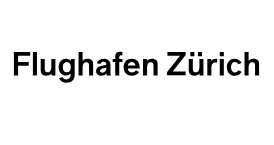The Sensing, Interaction & Perception Lab invites applications for a PhD position in Computational Interaction, focusing on sensor-based input detection for Augmented and Mixed Reality. This research combines
physiological time series analysis (specifically EMG during muscle activation),
machine learning, and
real-time system design for intelligent interaction systems. The research will contribute to the area of neural input systems.
Candidates ideally have a background in
Computer Science, Electrical Engineering, or Robotics and prior experience with event detection. Additional familiarity with building your own embedded sensing sensing setup is a strong plus (e.g., for EMG/ECG/EOG or other differential or regular sensors). An
optimal background for the project would be Electrical Engineering bachelor's (sensing, signal processing) with a more Computer Science-oriented master's (machine learning, time series processing).
This is
not a position in biomedical engineering and there is
no health focus.
Project backgroundEmerging AR/VR interfaces are limited by the input modalities they rely on and existing input devices have a limited bandwidth: pointing, clicking, typing. The future of Augmented and Mixed Reality systems promises much broader bandwidth for sensing input from a user through neural interfaces.
In this project, we aim to explore EMG-based signal processing to detect input and user intent. The purpose of this is to
support emerging AR platforms (such as Meta Orion's EMG neural wristband ). We will explore how sensed differential signals can be leveraged for input, interaction, and adaptive control in MR environments. Central challenges include signal denoising, signal processing, robust event detection, and modeling shifts across sessions and users.
Job description - Develop machine learning pipelines for time series processing with a focus on event detection and real-time interaction.
- Investigate distribution shifts in physiological data and apply continual learning or transfer learning approaches.
- Design and run controlled experiments for data collection in lab and AR environments.
- Collaborate on building interactive prototypes and validating input systems in AR/VR with others in our interdisciplinary research team .
- Disseminate your findings in publications at top-tier venues and open-source your results tools.
- Present research findings at academic conferences, workshops, and seminars.
ProfileETH requirements:
- written and spoken fluency in English
- an excellent master's degree (MSc., M.Eng. or equivalent) in Computer Science, Electrical Engineering, Robotics, or related field
requirements for the position:
- Solid knowledge of machine learning, particularly for time series analysis and event detection
- Solid programming skills in C#, C++, or .NET-based languages (in addition to Python)
- Experience with signal processing
- Familiarity with experimental design and empirical validation methods
- optional but useful: prior experience with AR/VR and Unity/Unreal
beneficial
- Background in online learning or adaptive systems
- Experience with differential signals (EMG, ECG, EOG, or similar)
- Familiarity with Unity, AR/VR development, or real-time interfaces
- Building your own embedded sensing setup is a strong plus
- Experience conducting user studies
- Knowledge of biosignal acquisition hardware or even having built your own ECG/EMG/EOG sensing setup
We offerWe offer an exciting environment and team to study in and work with. Beyond the lab, ETH Zürich has several internationally recognized research groups dedicated to interactive systems, Human-Computer Interaction, AR/VR, health, and machine learning. In our research, we often collaborate with other groups and departments as well as with several other institutions and companies in Switzerland and abroad.
During your PhD, you will have the opportunity to contribute to and collaborate with the ETH AI Center and engage in ETHAR, ETH's Research Hub for Augmented Reality in collaboration with Google XR.
> Working, teaching and research at ETH Zurich
We value diversity In line with our values , ETH Zurich encourages an inclusive culture. We promote equality of opportunity, value diversity and nurture a working and learning environment in which the rights and dignity of all our staff and students are respected. Visit our Equal Opportunities and Diversity website to find out how we ensure a fair and open environment that allows everyone to grow and flourish.







